Related Research Articles
University College London is a public research university in London, England. It is a member institution of the federal University of London, and is the second-largest university in the United Kingdom by total enrolment and the largest by postgraduate enrolment.
The Fulbright Program, including the Fulbright–Hays Program, is one of several United States Cultural Exchange Programs with the goal of improving intercultural relations, cultural diplomacy, and intercultural competence between the people of the United States and other countries through the exchange of persons, knowledge, and skills. Via the program, competitively-selected American citizens including students, scholars, teachers, professionals, scientists, and artists may receive scholarships or grants to study, conduct research, teach, or exercise their talents abroad; and citizens of other countries may qualify to do the same in the United States.
A fellow is a concept whose exact meaning depends on context. In learned or professional societies, it refers to a privileged member who is specially elected in recognition of their work and achievements. Within the context of higher educational institutions, a fellow can be a member of a highly ranked group of teachers at a particular college or university or a member of the governing body in some universities; it can also be a specially selected postgraduate student who has been appointed to a post granting a stipend, research facilities and other privileges for a fixed period in order to undertake some advanced study or research, often in return for teaching services. In the context of research and development-intensive large companies or corporations, the title "fellow" is sometimes given to a small number of senior scientists and engineers. In the context of medical education in North America, a fellow is a physician who is undergoing a supervised, sub-specialty medical training (fellowship) after having completed a specialty training program (residency).

The Dan David Prize is an international group of awards that recognize and support outstanding contributions to the study of history and other disciplines that shed light on the human past. Nine prizes of $300,000 are awarded each year to outstanding early- and mid-career scholars and practitioners in the historical disciplines. The Prize has an annual purse of $3 million, making it the largest history award in the world, including $300,000 funding an international postdoctoral fellowship program at Tel Aviv University, where the Prize is headquartered. The Prize is endowed by the Dan David Foundation.
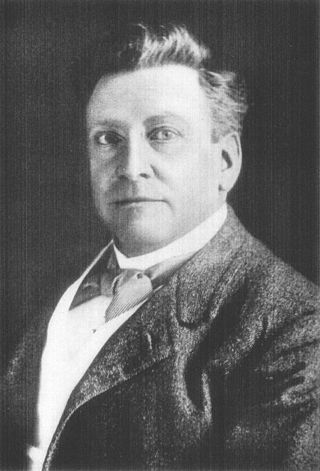
The Leverhulme Trust is a large national grant-making organisation in the United Kingdom. It was established in 1925 under the will of the 1st Viscount Leverhulme (1851–1925), with the instruction that its resources should be used to support "scholarships for the purposes of research and education."

Catherine Hall is a British academic. She is Emerita Professor of Modern British Social and Cultural History at University College London and chair of its digital scholarship project, the Centre for the Study of the Legacies of British Slavery. Her work as a feminist historian focuses on the 18th and 19th centuries, and the themes of gender, class, race and empire.
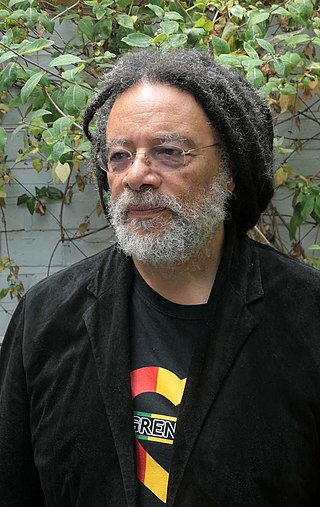
Paul Gilroy is an English sociologist and cultural studies scholar who is the founding Director of the Sarah Parker Remond Centre for the Study of Race and Racism at University College London (UCL). Gilroy is the 2019 winner of the €660,000 Holberg Prize, for "his outstanding contributions to a number of academic fields, including cultural studies, critical race studies, sociology, history, anthropology and African-American studies".
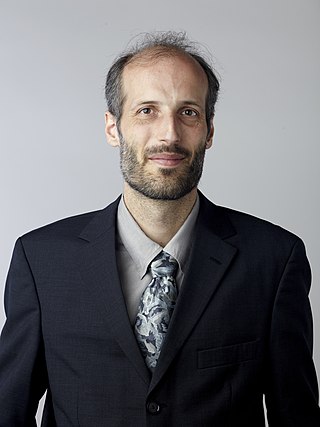
Sir Martin Hairer is an Austrian-British mathematician working in the field of stochastic analysis, in particular stochastic partial differential equations. He is Professor of Mathematics at EPFL and at Imperial College London. He previously held appointments at the University of Warwick and the Courant Institute of New York University. In 2014 he was awarded the Fields Medal, one of the highest honours a mathematician can achieve. In 2020 he won the 2021 Breakthrough Prize in Mathematics.
The Philip Leverhulme Prize is awarded by the Leverhulme Trust to recognise the achievement of outstanding researchers whose work has already attracted international recognition and whose future career is exceptionally promising. The prize scheme makes up to thirty awards of £100,000 a year, across a range of academic disciplines.
The Department of Information Studies is a department of the UCL Faculty of Arts and Humanities.
Bashar Ahmad Nuseibeh, is a professor of computing at The Open University in the United Kingdom, a professor of software engineering at the University of Limerick in Ireland, and chief scientist of Lero, the Irish Software Research Centre. He is also an honorary professor at University College London (UCL) and the National Institute of Informatics (NII), Japan.

Hiranya Vajramani Peiris is a British astrophysicist at the University of Cambridge, where she holds the Professorship of Astrophysics (1909). She is best known for her work on the cosmic microwave background radiation, and interdisciplinary links between cosmology and high-energy physics. She was one of 27 scientists who received the Breakthrough Prize in Fundamental Physics in 2018 for their "detailed maps of the early universe."
Ruth Elizabeth Baker is a British applied mathematician and mathematical biologist at the University of Oxford whose research interests include pattern formation, morphogenesis, and the mathematical modeling of cell biology and developmental biology.
Sarah Livia Zerbes is a German algebraic number theorist at ETH Zurich. Her research interests include L-functions, modular forms, p-adic Hodge theory, and Iwasawa theory, and her work has led to new insights towards the Birch and Swinnerton-Dyer conjecture, which predicts the number of rational points on an elliptic curve by the behavior of an associated L-function.
Kim E. Jelfs is a computational chemist based at Imperial College London who was one of the recipients of the Harrison-Meldola Memorial Prizes in 2018. She develops software to predict the structures and properties of molecular systems for renewable energy.
Alexandra Silva is a Portuguese computer scientist and Professor at Cornell University. She was previously Professor of Algebra, Semantics, and Computation at University College London.
Heather A. Harrington is an applied mathematician interested in applied algebra and geometry, dynamical systems, chemical reaction network theory, topological data analysis, and systems biology. Since 2020, she is professor of mathematics and Royal Society University Research Fellow at the Mathematical Institute, University of Oxford, where she heads the Algebraic Systems Biology group. In 2023, she became a director at the Max Planck Institute of Molecular Cell Biology and Genetics, where she is also leading the interinstitutional Center for Systems Biology Dresden (CSBD) together with partners from the Technical University Dresden and the Max Planck Institute for the Physics of Complex Systems.
Daisy Fancourt is a British researcher who is a Professor of Psychobiology and Epidemiology at University College London. Her research focuses on the effects of social factors on health, including loneliness, social isolation, community assets, arts and cultural engagement, and social prescribing. During the COVID-19 pandemic Fancourt led a team running the UK's largest study into the psychological and social impact of COVID-19 and established the international network COVID Minds, aiming to better understand the impact of coronavirus disease on mental health and well-being. In She is listed by Clarivate as one of the most highly cited and influential scientists in the world.
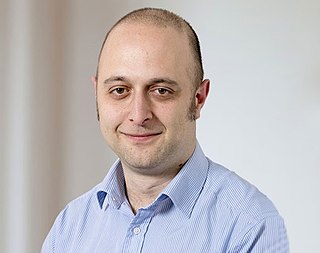
Paul S Davies is an English barrister and academic notable for having been published in many areas of private law, particularly commercial law. He has been the chair in Commercial Law at the Faculty of Law, University College London since 2017 and has practised as a barrister at Essex Court Chambers since 2021.
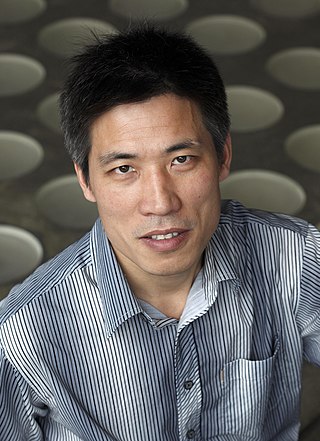
Junwang Tang, MAE, FRSC and FIMMM, is the Founding Director of Industrial Catalysis Center, and Carbon Neutrality Chair Professor of Materials Chemistry and Catalysis at the Department of Chemical Engineering, Tsinghua University and Visiting Professor at University College London (UCL). He also served as the Director of the University Material Hub at UCL (2016–2019).
References
- ↑ "British Library EThOS – Palaeoceanography of the South Iceland Rise over the past 21,000 years" . Retrieved December 21, 2018.
- ↑ "David Thornalley – UCL Staff Biography" . Retrieved December 21, 2018.
- ↑ "David Thornalley is UCL Student Choice Outstanding Teacher". May 1, 2015. Retrieved December 21, 2018.
- ↑ "David Thornalley awarded 2016 Leverhulme Prize". October 1, 2016. Retrieved December 21, 2018.